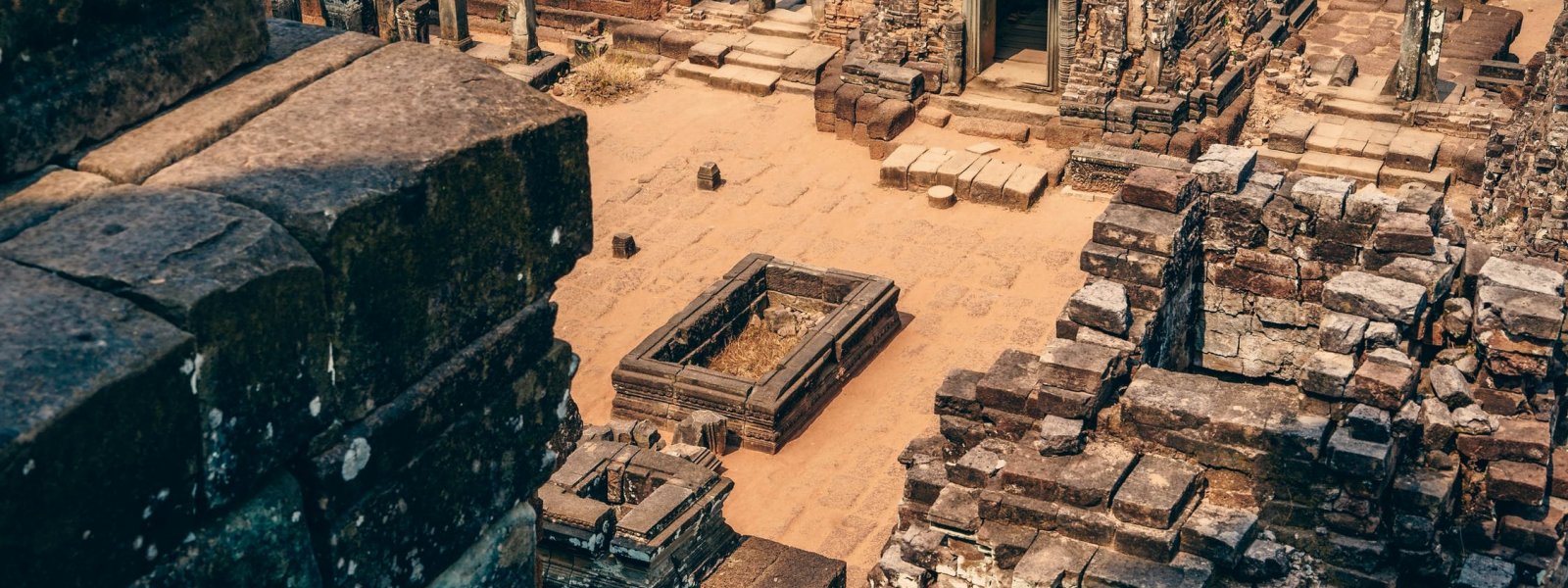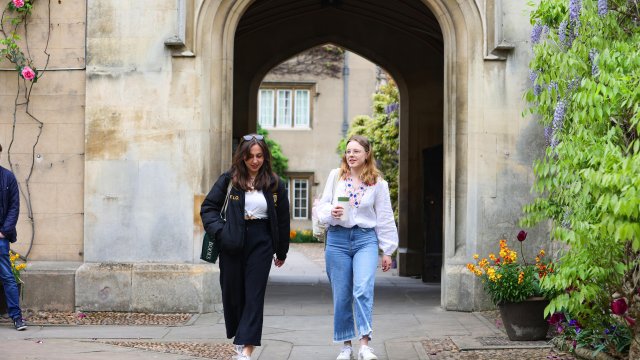How do you come to know the world? The world we live in and how we understand it, comes from generation upon generation of evolutionary, social, and material developments. Archaeology and Biological anthropology explore these developments and changes over time.
Important Note Concerning Interviews for 2024
Please note, all undergraduate admissions interviews at Sidney Sussex for the 2024-25 admissions round will be held online. Further details regarding interview platform will follow.
Studying Archaeology and Biological Anthropology at Sidney Sussex College provides a great way of exploring the diversity of human existence from the first bipedal hominins to current issues of heritage and identity. The Fellows and Director of Studies at Sidney Sussex have wide ranging experience across the globe and across time - from the early farmers of Europe to the great civilisations of Europe, Asia and the Americas. However, because of their wide interests and research, there is great support to follow your own interests across time and space!
Archaeology and Biological Anthropology at Cambridge provides a truly global view where students can follow a humanities approach learning ancient languages from Assyria and Egypt, a social science approach embedded in material culture and social theory. You will learn about key archaeological science methods, participate in fieldwork and develop both your practical and interpretive skills. The department liaises with other departments so students can select option papers from Classics, ASNC, Social Anthropology and Psychology. Studying Archaeology and Biological Anthropology at Cambridge and Sidney Sussex College allows students to follow their own trajectory and interests.
Undergraduate Study
Sidney has an established expertise in Archaeology and Biological Anthropology. The disciplines are also well-anchored among the Fellowship. With a small but active and diverse Fellowship in the discipline, students at Sidney will benefit from first-hand knowledge and current research being conducted in the field across different regions and temporal periods. Cohort activities are encouraged by the Director of Studies who assists the archaeology student(s) at Sidney in building networks and hearing about current research being conducted by those in the College and University.
- Written work
One essay. We will send out more specific information about what is required after the UCAS deadline, but you will not need to write anything new specially for this.
- Admissions assessment
If you’re shortlisted for interview, you may need to take a written assessment. Please check back in April 2024 for details. If an assessment is required, you will not need to register in advance and we will provide details directly to you.
- Interviews
- All undergraduate admissions interviews at Sidney Sussex for the 2024-25 admissions round will be held online. Further details regarding interview platform will follow.
- Two interviews, both with a focus on the subject. Candidates may be asked to consider some form of written or non-written source material in one or both of the interviews. Applicants are not expected to have any standard background in archaeology, as the field is highly varied, and the subject is not often taught in schools. However, applicants should be prepared to discuss their relevant interests and the potential directions they may wish to follow at interview.
- Subject requirements
Learn about our standard entry requirements for Archaeology on the University website. At Sidney, we consider a wide range of subjects to be useful preparation for the course, including Classics, Geography, History, an ancient or modern language, science subjects, and social sciences. Applicants for Egyptology and Assyriology are strongly encouraged to study an ancient or modern language. Please note that offers are set on an individual basis using all of the information available to us in context of the entire field of applicants.
- Beyond the syllabus
Are you excited to learn more about the subject by delving beyond the school syllabus? Explore our Beyond the syllabus resource hub to discover interesting websites, podcasts, videos, and books related to the subject you love!
Typical intake
1
Typical A-level offer
A*AA
Typical IB offer
41-42 points overall, with 776 at Higher Level
Postgraduate Study
Postgraduate study in Archaeology and Biological Anthropology allows students to hone particular research and methods skills for many different skills. There are specialist trajectories - such as in heritage and Ancient Near East studies - as well as more traditional trajectories in both geographical and temporal studies. The MPhil allows students to develop their theoretical and methodological foundations and the dissertation builds the student's independent research ability with guidance from experts in the field. The PhD programme allows students a final research goal and an active, diverse community provides ample wide-ranging support for academic depth and development.
At the University of Cambridge applications for postgraduate study are processed centrally by the Postgraduate Admissions Office. The application form and supporting documents are submitted electronically via their website and the online self-service system, though academic decisions on applications are made by the Faculty.
- Funding
There are many funding opportunities at Cambridge from a wide variety of sources including the Cambridge Trust, Gates Cambridge, Colleges, Departments, Research Councils and central University funds. You can use the Postgraduate Admissions' Cambridge Funding Search to find out which type of funding you might be eligible for, and how and when to apply. They also operate a Postgraduate Funding Competition to co-ordinate some of these funding opportunities and make the process easier for you as an applicant.
To find information about the funds available for postgraduate students at Sidney, visit our Studentships and funding page.
- Useful links
Course directory | Postgraduate Admissions | University of Cambridge
Funding | Postgraduate Admissions | University of Cambridge
How do I apply? | Postgraduate Admissions | University of Cambridge
International students | Postgraduate Admissions | University of Cambridge
Opportunities to work, travel, and study
The Department of Archaeology and Biological Anthropology encourages students to participate in fieldwork and develop their own research interests even at the undergraduate level. There are field trips to places such as Stonehenge and Avebury in the first year as well as two weeks of local field school to hone practical skills. During the summer between IIA and IIB, students are required to participate in further fieldwork opportunities supported by the department. Not all trajectories require fieldwork as a component but often students are encouraged to design their own summer study and research.
The College is able to offer support across a number of subjects for costs associated with research and subject-related travel costs (ie attending conferences, field trips etc).
Discover more on our Opportunities to work, travel, and study page.


